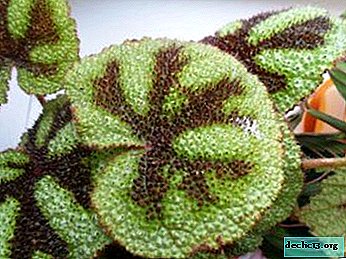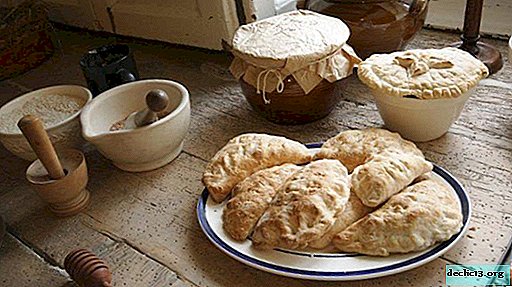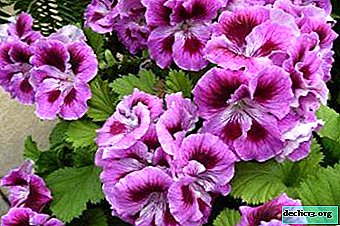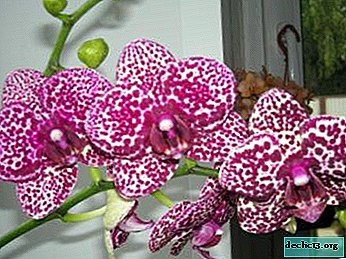The benefits and harms of different types of beans

Not a single good housewife, who cares about the health of loved ones, can do without beans. Beans are the most valuable source of vitamins, microelements, fiber and vegetable protein; they are characterized by low calorie content, which makes them indispensable for those who are losing weight and are eager to eat right.
Beans fit perfectly into salads, side dishes and soups recipes. It can be boiled, baked, steamed, canned, and during heat treatment it retains its useful properties almost in full. Let's talk about the benefits and harms.
Composition and nutritional value

Nutritionists are sure: beans should be present in the daily diet, because in terms of the richness of nutrients, no product can compare with it. This bean crop contains:
- Plant protein (about 20%), which is absorbed by the human body is much better than an animal.
- Fiber, which helps remove toxins and toxins.
- Slow carbohydrates, saturating cells and tissues with energy for a long time without harmful jumps in glucose levels.
- Vitamins (A, C, E, PP, Group B).
- Trace elements (zinc, iron, copper, iodine, fluorine, manganese, selenium and others).
The fat content is low - only 2%, and the energy value of boiled beans is about 95 kcal per 100 grams, which makes them an indispensable product of many diets. The composition and useful properties of different varieties (red, white, black, green) are not much different.
Video plotThe benefits and harms of red and white beans
Red and white beans are a traditional and familiar type of bean from childhood. White - more crumbly, with a delicate taste. Many people prefer to use it stewed or canned. Red has a more pronounced, but also pleasant taste. It can be added to salads, side dishes, soups. Black has a sweeter taste with barely noticeable bitterness. It goes well with vegetable salads, added to stews and served with meat.
Red and white beans have a beneficial effect on the functioning of organs and systems of the body.
- Cardiovascular system: able to reduce pressure, which is an excellent prevention of hypertension.
- Urinary system: removes stones and sand from the kidneys, relieves inflammation, has a diuretic effect.
- GIT: removes toxins, increases acidity in gastritis, and fights liver inflammation.
- It is useful for diabetes, tuberculosis and anemia, a beneficial effect on the state of the nervous system.
However, even the most useful product may have contraindications.
So, it is not recommended to abuse beans to people with gout, high acidity of the stomach, cholecystitis, ulcers. Do not introduce a vegetable into the diet of children under three years of age.In case of individual intolerance should also be excluded from the menu.
The benefits and harms of green beans

Green beans - the fragile pods of vegetable beans (the one that is not grown for seeds) is the most delicious and beloved type of legumes. The leaves of the young bean pods remain soft and supple, so they can be eaten.
With proper processing, green beans work wonders with the body. What are the beneficial properties of this unique vegetable?
- It helps to normalize the digestion process, cleanse the intestines from harmful waste products.
- It has antimicrobial and anti-inflammatory properties, it fights well with viral, fungal and infectious diseases. Regular eating helps to clean the surface of the teeth, get rid of bad breath.
- Due to the high content of vitamins A and E, the condition of the skin, hair and nails improves.
- It is especially useful for diabetics - it can bring blood sugar levels to normal.
- Women during menopause, including green beans in the diet, note a significant improvement in well-being.
- Helps to cope with stress and anxiety, with diseases of the urinary system.
- Useful for men with sexual dysfunction.
String beans has the same contraindications as red and white brothers, but has a milder effect on digestion, therefore it is allowed to be given to children from one year of age as mashed potatoes, while white and red can be introduced into the diet with only three years.
Video info
Asparagus beans: benefits and harms
Asparagus haricot is a variety of siliculose, in which the pods are completely green and tender. Recently grown special varieties with long and thin pods.
Asparagus beans remove excess salt from the body if cooked with a minimum amount of salt. Helps strengthen the cardiovascular system. Arginine in the composition acts on the body like insulin.
It should be remembered that you can not eat raw asparagus beans. The fresh product contains many toxic substances that are neutralized by heat treatment.
Like any other species, asparagus pods can cause bloating, so people with problem intestines should be careful.
Beans during pregnancy
The use of beans for the future mother and baby is huge. She is able to increase the level of hemoglobin, relieve the pregnant woman from toxicosis, high blood pressure and other unpleasant symptoms that accompany the process of bearing a child.
Pregnant women also have such an unpleasant cosmetic defect as age spots. Beans help prevent their occurrence and even out complexion. The iron in the composition increases immunity, because during pregnancy, a woman's body is vulnerable to viruses. Magnesium supports the nervous system throughout the gestation period.
In order for beans to benefit the body and not provoke flatulence or digestive upset, it should be consumed only after preliminary soaking and heat treatment.
Pregnant women are advised not to use beans along with meat dishes, this combination is too heavy for the digestive system.Adequate digestion will help facilitate digestion.
How to maintain useful cooking properties

Beans - a truly amazing vegetable, because with any type of heat treatment, it retains a maximum of beneficial properties. The only cooking method in which it loses most of its important substances is canning. How to cook the beans correctly so that it is both healthy and tasty?
The main trick of getting a soft and delicate dish is pre-soaking in water.
- Slow soaking is an old familiar way when beans are poured with water and left overnight like chickpeas. Ideally, the water changes every three hours. Water must be drained before cooking.
- Hot soaking: beans are poured into boiling water, boiled for 2-3 minutes, and then left in a sealed container for 2-3 hours.
- Favorable for the intestine method: the same manipulations are carried out as with hot soaking, only the beans are left to infuse under the lid overnight.
Using one of the methods of soaking, do not forget to boil in new, clean water. The cooking process is at least one and a half hours. Salt and spices are added at the end of cooking.
Red, white or green, boiled or baked with vegetables in the oven, beans - one of the most valuable products discovered by mankind. If there are no contraindications, it must certainly become part of the diet for those who care about health and well-being.

















